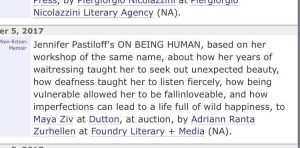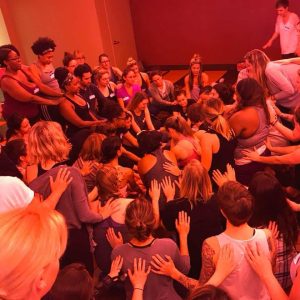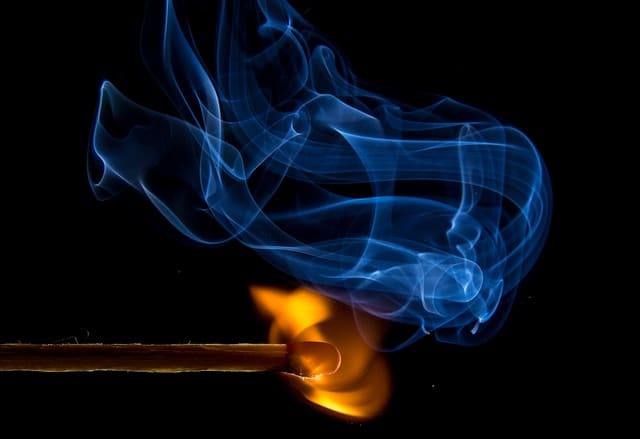By Jane O’Shields-Hayner
“It’s hot as blue blazes!” I said, wiping the sweat from my face with a faded, red bandana. I wet it under the garden hose and lay it, cool, around my neck.”
“Can we get more ice cubes, Mommy?” Rebekah asked.
“We’ve used them all. They go fast when it’s a hundred and six.” I answered, stepping into the soupy water of the plastic pool where my daughters sat with squirt toys, dolls, and blades of grass bobbing on the surface.
Rachael hugged my bare legs and lay her cheek against my knee. “Can we go to a real pool, Mommy?” She begged. “…a big one with a divey board and everything, … please?”
“I think it’s time we found one…” I said, …but let’s eat first!”
Both girls stood up in the tepid water and began to dance. “Swimmy pool, swimmy pool!” they chanted.
I stepped out, brushed the green cuts of grass from my legs and headed for the house. “You-all play in the sprinkler while I make lunch!” I called back.
“OK, Mommy!” shouted Rebekah, dragging a hot hose with a sprinkler ring spraying behind it.
I walked up the back steps, where three air conditioners roared from windows in our rented home. The one near me sounded a loud boom and the walls and wood floor lurched, as the thermostat switched it off or on. I had learned to sleep through it, in fact, it comforted me; for I was born and raised in the blistering heat of North Central Texas.
I splashed my face, leaning over the kitchen sink, watching my four and six-year-old daughters through the kitchen window, running through a plume of water that rose from the grass.
We had pulled on our swim suits after breakfast, knowing the mercury was expected to hit one hundred and six, not an unusual temperature for a June day in Fort Worth.
I was packing peanut butter and sliced banana sandwiches into paper bags when Rebekah walked through the back door holding two naked Barbie Dolls, their wet, vinyl hair dripping a trail behind her.
“Swimmy pool, swimmy pool!” chanted Rachael, as she ran through the kitchen and grabbed her Michael Jackson, special edition doll, with a red jacket and a tiny glove on one hand.
“Put on your flip flops and let’s go.” I said, standing on one leg and picking a tiny, plastic shoe the size of a tic tac from my foot.
In Texas, the heat is as oppressive as snow in a blizzard. It begins in early May and doesn’t let up until November. As long as humans have lived on the land called Texas, they have looked for rivers, stock ponds or any form of water hole in the summer.
We loaded in my Oldsmobile wagon, with lunches, towels, and dolls. It was a dying machine, with a cracked engine block, but blessedly, the air conditioning worked.
“We’ll look for someplace close to home, someplace we can afford.” I said, wondering if we could afford anything, as I drove away, squinting into the punishing rays of the Texas sun.
The girls sang and danced their dolls across the bench seats.
“Why don’t we go to the old pool where we went with Daddy?” asked Rebekah.
“Its too far away, Honey.” I said.
“Maybe Daddy still swims there.” added Rachael.
“Maybe he does.” I answered and changed the subject. “Let’s check out the Elk’s Club. I remember one down this way.”
I knew little about Elk’s Clubs, other than a foggy memory of a racial discrimination lawsuit, but maybe that story was history, I thought. It was worth a look.
During my childhood, deep, pervasive racism denied minorities access to public and private pools in Texas. Although such discrimination was now illegal, it still hid in the shadows.
“I know where the Elk’s Club is.” said Rebekah, “It’s down that street.” She raised her arm and pointed. “It has a statue of a little horse in front of it.” At six years of age, Rebekah was already good with directions.
“It’s supposed to be an Elk.” I said. “It has horns.”
“No, Mommy,…” said Rachael…it’s a unicorn. Unicorns have horns.” Then she began singing about a Unicorn and dancing in her seat.
I turned up a tree lined boulevard with exceptionally green lawns and caught sight of the tiny, horned horse standing before me. As I pulled my wagon into the lot, I considered what I should do. I had lived in the northeastern states for almost ten years, and when I returned to Texas, I was sad and angry to find every day racism still practiced in the place of my birth.
Maybe I would walk into a healthy, ethnic mix of Elks, I thought. That would solve it! We wouldn’t fit in if everyone looked like us, I thought.
We left the car, knowing it would feel like the interior of a kiln when we returned, and walked up the wide, concrete steps, past the Elk, with his ears forward, perfectly poised, just as they had been for the decades I had passed it by.
The lobby was dark and cool and the girls wrapped their towels around their shoulders.
A brown skinned woman in a maid’s uniform was bussing dishes from a table. “May I speak to the manager?” I asked her.
“Si…” she said, smiling. “I get him.”
From a side room, a portly man in a suit and tie walked toward us with a big salesman’s smile. “How can I help you?” he asked.
“I’m interested in a pool membership.” I answered.
He shifted, his weight from side to side and grinned. “Well, the pool comes with the Elks Club membership.” he said.
The dark room was illuminated by sunlight from the patio, and the scene outside was alive with swimmers and sunbathers. A glass wall separated us from it and blocked all the sounds of splashing and revelry. It resembled an animated diorama in a museum, with the sound off.
Rebekah and Rachael whispered and giggled, watching the fun on the other side of the glass and the portly manager leaned forward and spoke to the children.
“Do you girls like to swim?” he asked, raising his brows and widening his eyes.
They began jumping in place.
“Yes…yes…we swim with our Mommy!” Rebekah said.
Rachael took her thumb from her mouth. “Sometimes we wear floaties.” she added.
“And sometimes Mommy stands a little bit away and we paddle to her.” said Rebekah, dog-paddling the air with her hands.
“Do you want to swim today?” The manager asked. Then he straightened his tie, turned to me and said: “Come on into the office, y’all, and I’ll get you signed up. The pool is open!”
“Yeah, yeah!” said the children.
It was apparent that he was visualizing a membership in process. I scanned the room. There were assembly line paintings of Elk on the walls and Elk figurines standing on each shining, mahogany surface. The girls went from table to table, looking longingly at the diminutive statues, both of them enchanted.
A couple of people walked from a door with a neon sign above it that said: Bar and Restaurant. Neither they nor anyone sitting on any of the couches had a significant portion of melanin in their skin, nor did anyone frolicking in the pool or lounging in the sun. I had to ask the question.
As bold as I had become in many respects, I sometimes felt like a child in the presence of the kind of adult my mother wished I had become, someone who wore a suit when the temperature was a hundred and six, someone who practiced the old Texas racism in which I was raised. I was still an outsider.
What words should I use to ask this question? I had gone to college with, lived near, or befriended someone from any ethnic group I could think of. I thought about my brown-skinned friends. What would happen if I brought them here? The Latina service woman was still polishing tables, and I made one more scrutinizing scan of the happy swimmers, outside.
I faced the smiling man, took a breath and asked politely: “Do you have any African American members here, or people from Latin America?”
“Well…” he said. Then he shrugged his shoulders, and shifted his weight again and I knew he was performing a well-practiced dance. He stepped close enough for me to smell his breath, and he lowered his voice.
“We don’t actually say that we don’t…” he half-whispered. “…but we have ways of… you know…” he said, and grinned at me with a kind of white person’s toothy code, followed by a wink and a smile. I felt a smoldering sensation rise in my face.
The girls were dancing. Rachael paused, pressed Michael Jackson to her cheek and held her other hand to her mouth, sucking her thumb as she watched my face.
I lingered for a moment, watching the four of us in a kind of civil rights melodrama, thirty years late. I was indignant in my pale skin, standing before an all-white diorama of delights, and I knew with certainty that my children and I did not belong there.
A broad smile of confidence, lay across the manager’s face.
I spoke deliberately loud enough to be overheard by the cleaning staff. “Thank you for letting me know.” I said. “…because I would never belong to a club or organization that refused people on the basis of race, religion, or country of origin.”
Then I smiled back at him, feeling weightless and calm, having dropped one more burden of residual racism, right where I stood, wearing flip-flops, with my children beside me, holding wet dolls.
“Let’s go.” I said to the girls, who by then were wearing sad faces and staring, confused, suspecting they would never cross the bright window of light and join the fun it promised.
We turned our backs on the frolicking swimmers and walked from the dark lobby into the sunlight, descending the stairs past the perfectly poised Elk that still faced the parking lot in three-digit heat. I never looked back to see the manager’s face.
“Why did we leave, Mommy?” Rebekah asked, her voice an octave higher.
“Where will we go swimmy now, Mommy?” cried Rachael, her lip trembling. “I liked the horses and the pool!”
“They don’t like our friends.” I answered. “They don’t let them swim there.”
“Why not?” Rebekah quizzed me, indignant.
“It’s an old, misguided, habit…” I answered, “…but it’s unfair. We don’t go places where people are not fair.” I said.
“Who can’t swim there?” asked Rebekah.
“Our brown-skinned friends…and others.” I said.
“Like Michael Jackson?” asked Rachael, sounding shocked.
“You mean like Ingrid, her Mom and our fugee friends from Guatamala?” asked Rebekah.
“Yep…” I answered, opening a car door. “…not our refugee friends, not Michael Jackson… none of them could swim here. It’s a mean habit.” I said, shaking my head.
We lay our pool towels over the plastic seat covers, which were hot enough by now to fry bacon.
“Let’s check out the YMCA.” I said. “Wave bye-bye to the little horse.” I added.
“Bye bye.” they said, blowing kisses and holding the Barbies and Michael Jackson up to the windows.
“Bye bye, Unicorn.” said Rachael, and placed her thumb back in her mouth, humming the tune by the Village People while her sister sang.
“Its great to stay at the…” she moved the dolls’ arms and legs, spelling out the letters: “…Y.M.C.A.!”
“Let’s get out of these blue blazes!” said Rebekah. “Mean habits are blue blazes, aren’t they Mommy?”
“They are! I answered. They will burn you!”
Jane O’Shields-Hayner is a writer and visual artist, living in the foothills of the Santa Ana Mountains, in Southern California. Her words and images traverse cultural, political and spiritual terrains. Born and raised in Texas, and having lived and traveled widely, her themes and stories tend to bleed into one another and blur at the edges. Jane is a practicing Occupational therapist with a specialty in home health and she has a history in teaching art and writing. She lives with her husband and two of their four children on the edge of a canyon near the Cleveland National Forrest, where wild and domestic creatures coexist. Jane writes creative non-fiction, fiction, and poetry. Her recent work has been published in Tiferet Journal, Friends Journal, Lady Liberty Lit., The Manifest Station and Western Friend. She is currently completing a trilogy of short-stories written in homage to Kurt Vonnegut, Jr.
We are proud to have founded the Aleksander Fund. To learn more or to donate please click here. To sign up for On being Human Tuscany Sep 5-18, 2018 please email je*******************@***il.com.


